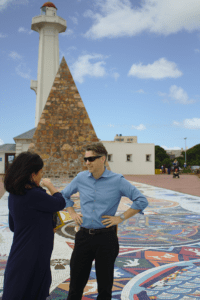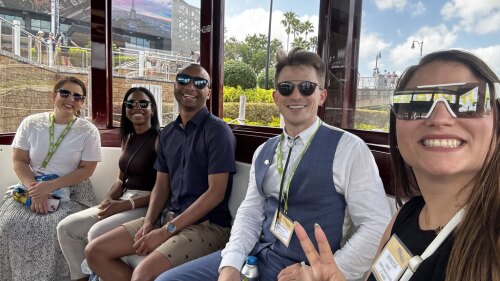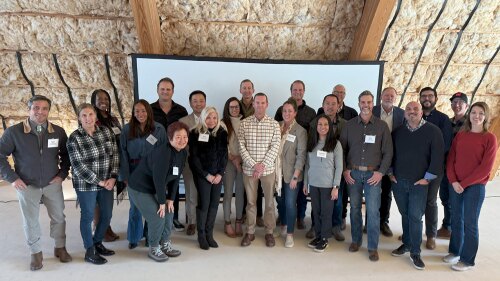Of all of the Institute’s many offerings, perhaps the one that best delivers an ideal combination of member value and mission advancement is our Advisory Services program. For 70 years, through economic booms and busts and countless changes in public office, this program has consistently delivered pragmatic, unbiased, and nonpartisan solutions to complex urban development problems faced by cities around the world.
What makes Advisory Services such an effective and trusted resource is the land use expertise and business acumen of the program participants—ULI members representing all aspects of industry disciplines, each addressing a panel assignment with a fresh, independent perspective that, more often than not, results in a new way of thinking among stakeholders about what is best for their communities. This approach has a long track record of successes, ranging from revitalizing historic downtowns to transforming drab industrial waterfronts into lively public spaces. Regardless of the specifics of each assignment, recommendations are based on development that enhances the prosperity, sustainability, and livability of the entire community. Recent examples of places where the panels’ work is being incorporated into planning or activities underway include the following:
- South Africa, where a series of panels catalyzed by the World Bank offered advice to the nation’s federal treasury and local leaders on how to effectively and equitably distribute funding to municipalities and drive new development patterns;
- Miami, where panelists made recommendations on reducing the vulnerability of the Arch Creek Basin neighborhood to flooding from severe weather;
- Foshan, China, where a panel evaluated how to preserve the city’s historic central core and boost its appeal to talented workers;
- Houston, where a panel provided a comprehensive plan for reviving the iconic-but-obsolete Astrodome and adjacent property as a dynamic gathering place; and
- Pittsburgh, where a panel advised the city on how best to revitalize neighborhoods in the eastern section so that they benefit from the transformation into a thriving 18-hour city.
The Advisory Services program, along with the Technical Assistance Program (TAP) panels operated through the district councils, continue to be among ULI’s most popular activities in terms of members seeking to participate. In fiscal year 2016 alone, members volunteered more than 5,600 hours serving on Advisory Services panels and more than 7,900 hours volunteering on TAP panels.

On the site tour during a 2015 Advisory Service Panel in Nelson Mandela Bay, South Africa , ULI panelists visited the Donkin Reserve, which forms part of the City’s Route 67, a series of public art works celebrating former president Nelson Mandela’s role in the struggle for freedom in South Africa. Panelists featured are Dorelle Sapere, planning and development manager for the Mandela Bay Development Agency, speaks with Mark Huppert, principal at Point B Property Development. (© Brendon Bosworth)
While support from community sponsors continues to be a key funding source for the program, it is evolving into one that also has significant philanthropic support. For instance, over the past two years, the Kresge Foundation has funded several advisory panels, such as the one in Miami, to advise on improving the resilience of communities vulnerable to flooding and rising sea levels. That’s a departure from the traditional format, in that a series of panels was convened and funded to focus on an issue affecting several communities, rather than one panel being convened by a sponsor to address a problem specific to one community.
This year, we are placing a special emphasis on Advisory Services, and will be looking at how to effectively expand the program’s reach. ULI leader James DeFrancia, who has chaired numerous panels, is leading a task force that is exploring how to achieve the following goals:
- Broaden the pool of panelists to include more members from more markets;
- Improve access to communities in need of advisory services;
- Increase the number of communities served globally;
- Better assess the impact of the panels’ work; and
- Create more dedicated resources for the program, including more ULI Foundation support.
In addition, we are considering how to diversify the types of panels that are convened to deliver advice. For instance, several advisory board members for the ULI Terwilliger Center for Housing recently served as a panel to advise Charlotte, North Carolina, on how to increase the supply of workforce housing in that city. This approach represents new possibilities to further stretch the Advisory Services program’s influence and impact.
Having served on panels both as ULI’s global chief executive officer and as a member, I can attest to the intellectual stimulation and satisfaction derived from giving back. Through the enhancements we will make to the program, more members will be able to experience the benefits that come with participating as an Advisory Services panelist.
One way we will be able to identify new participants will be through our Leadership Navigator, a new online tool we will be launching soon that will match members with leadership opportunities that are the best fit for their areas of expertise, interests, and desired level of engagement. This could include service as a panelist.
I am very excited about the potential of Advisory Services in the years ahead. With so many factors affecting how our cities grow—demographic and population shifts, new economic drivers, technology advancements, environmental concerns, and infrastructure needs, to name a few—the nuts-and-bolts, spot-on advice this program offers has never been more necessary. Stay tuned for updates on how we are making a good thing even better for our members and our communities.






